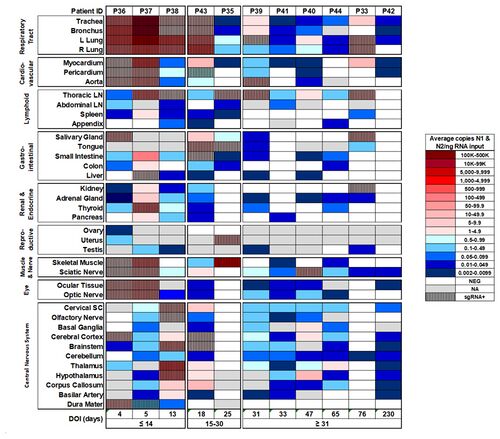Long covid and the brain: Difference between revisions
No edit summary |
|||
| Line 7: | Line 7: | ||
Although COVID is primarily target to respiration systems, there is growing evidence that COVID-19 can have long-term effects on the brain, including potential links to increased risks of neurological diseases like Parkinson's and Alzheimer's disease in the future. Corona virus was unusual because it had been found the virus across blood-brain barrier. The dissecting samples shows the virus is preserved in brain tissue over months and it is still active. | Although COVID is primarily target to respiration systems, there is growing evidence that COVID-19 can have long-term effects on the brain, including potential links to increased risks of neurological diseases like Parkinson's and Alzheimer's disease in the future. Corona virus was unusual because it had been found the virus across blood-brain barrier. The dissecting samples shows the virus is preserved in brain tissue over months and it is still active. | ||
[[Image | [[Image:Virusd.jpeg|thumb|500px| Fig.1 ]] | ||
==Neurological Symptoms== | ==Neurological Symptoms== | ||
Revision as of 14:59, 9 April 2024
Introduction
Overview of long COVID
Long COVID or Post COVID conditions, also known as post-acute sequelae of SARS-CoV-2 infection(PASC),refers to a range of symptoms that continue for weeks, months, or even years after the patient initially recovering from the coronavirus disease(COVID-19). The condition can affect anyone who was infected by COVID-19, regardless of the severity of their initial infection. The symptoms of long term COVID can various between each individual and be very complicated because it sometimes impact multiple organism systems. The complexity of the symptoms often leads to post-COVID conditions being diagnosed as other diseases.
COVID and the Nervous System
Although COVID is primarily target to respiration systems, there is growing evidence that COVID-19 can have long-term effects on the brain, including potential links to increased risks of neurological diseases like Parkinson's and Alzheimer's disease in the future. Corona virus was unusual because it had been found the virus across blood-brain barrier. The dissecting samples shows the virus is preserved in brain tissue over months and it is still active.
Neurological Symptoms
Pathophysiology
Nasal Infections
Breathing Pathway
Diagnosis and Evaluation
Treatment and Management
Long COVID Treatment Potential Impact of the Treatment DNA sensing TLR9 pathway and Long term memory formation https://www.nature.com/articles/s41586-024-07220-7

